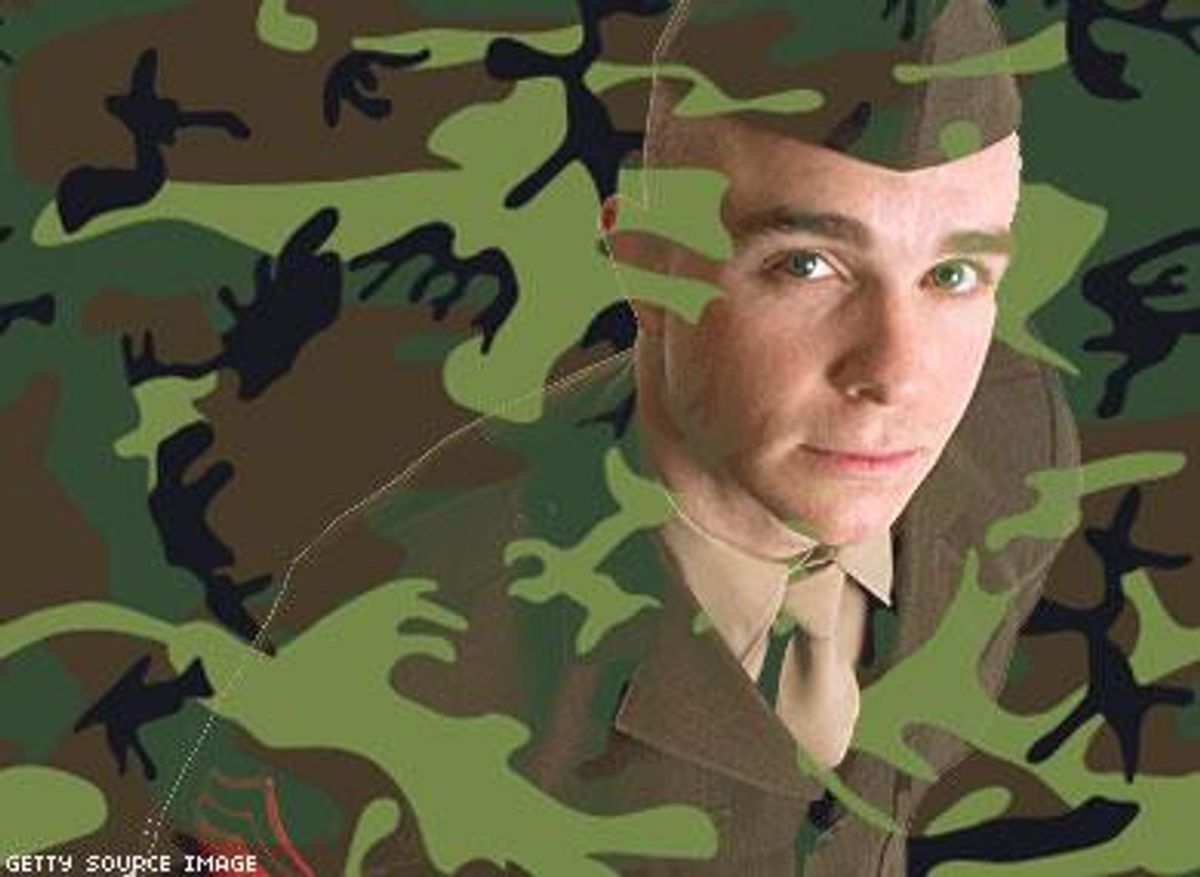
Concealing your life from your coworkers may be stressful, but in the military, it can be life-threatening.
June 09 2009 12:00 AM EST
November 17 2015 5:28 AM EST
By continuing to use our site, you agree to our Private Policy and Terms of Use.

Concealing your life from your coworkers may be stressful, but in the military, it can be life-threatening.
As Washington stalls on repealing "don't ask, don't tell," a recent Cornell University study confirms what many people had assumed: "DADT" isn't just bad for gay people, it's bad for the military too.
Gay and lesbian study participants who were asked to conceal their sexual orientation performed 20% worse on spatial reasoning tests and 50% worse on physical endurance tests as compared to those who were not given this instruction. The findings have clear implications for the battlefield. Gays and lesbians -- even those who follow the policy -- are prevented from performing optimally, which may affect the readiness of military units.
"It directly counters this argument that 'don't ask, don't tell' allows us to have the highest-performing individuals," said Clayton Critcher, a Ph.D. student in psychology and one of the study's authors. "It affects everyone around them and the general quality of performance."
Researchers instructed gay and lesbian participants not to reveal their sexual orientation while engaging in an eight to ten minute conversation, then asked them to take a spatial reasoning test -- adopted from an Army intelligence test -- and hold an exercise grip for as long as possible. Those asked to keep quiet about being gay in the preceding conversation were able to hold an exercise grip for 11 seconds, compared to an average of 23 for the control group; they also got 20 percent more questions wrong on the spatial reasoning test.
What is especially striking is that study participants did not have to be engaged in a conversation that might relate to sexuality -- for instance, one about relationships or family life -- in order for their abilities to be affected; the effect showed up even when the conversation was about academics or school life.
"There doesn't even have to be a serious, formal conversation," said Melissa Ferguson, a psychology professor at Cornell and the study's second author.
In explaining the study's findings, the authors suggested thinking of the mind as a battery. Concealing one's sexual orientation requires monitoring one's actions and social environment, tasks that draw on limited mental resources. After the conversation, participants' "batteries" are lower, causing them to perform worse on an array of tasks.
After a while the effect disappears, though researchers have not determined how long it lasts.
The fact that physical endurance is affected might seem strange, but Critcher explained that physical tasks are mental too.
"After a period of exercise, your body is telling you to stop and you override this," he said.
Critcher and Ferguson stressed that this effect is not about "mental anguish" caused by concealing one's sexual orientation. Even participants who reported they were not fatigued or upset by the conversation still demonstrated the effect.
"It's nothing about participants reporting distress," Ferguson said. "It's about their actual competence."
The study also suggests that the experience of hiding one's sexual identity did not significantly improve performance, though more research needs to be done. Previous work has shown that gays and lesbians who work under "don't ask, don't tell" may fail to receive adequate medical or psychological care for fear of revealing their sexual orientation, but this study is the first to draw a direct link between the policy and performance on tasks that are relevant to military service.
"DADT" Linked to Poor Performance
" >Want more breaking equality news & trending entertainment stories?
Check out our NEW 24/7 streaming service: the Advocate Channel!
Download the Advocate Channel App for your mobile phone and your favorite streaming device!